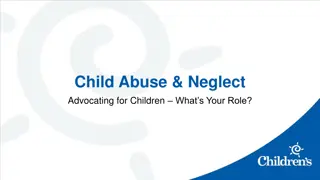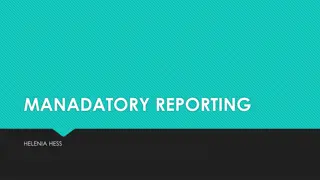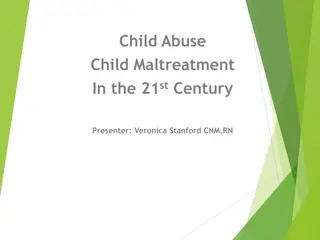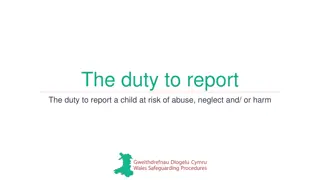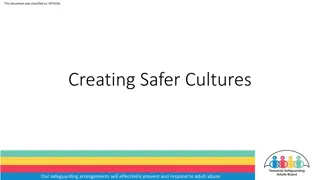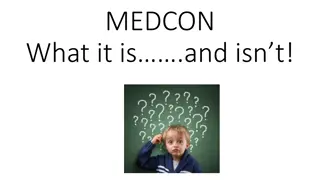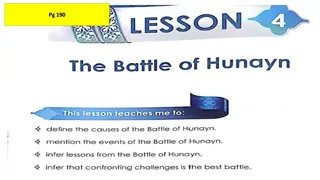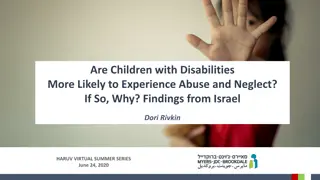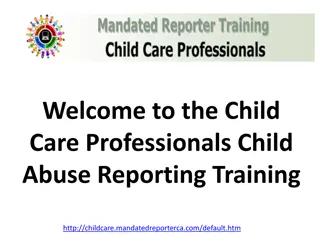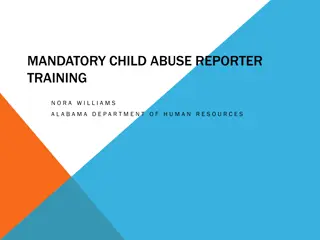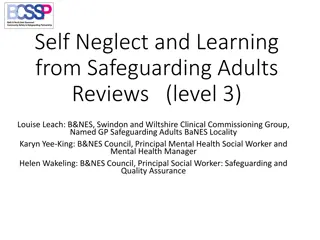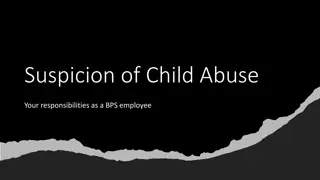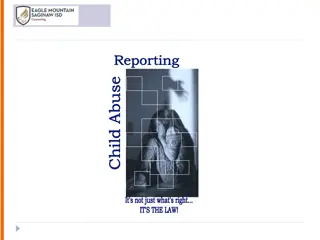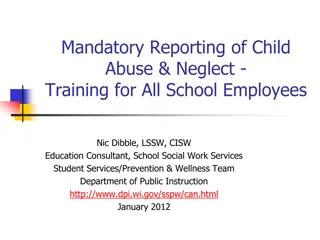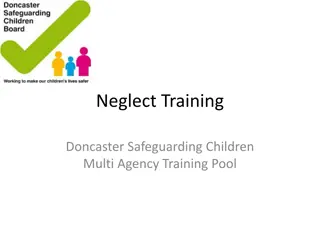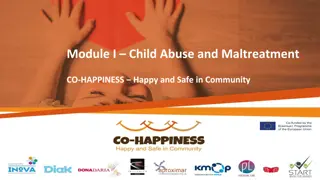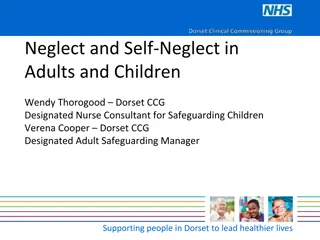Legal Battle Against Child Neglect and Abuse
The mother of Joshua DeShaney sued Winnebago County Social Services for neglecting her son, who suffered severe abuse at the hands of his father. Joshua's tragic story highlights the devastating impact of domestic violence and raises important questions about child protection laws.
Download Presentation

Please find below an Image/Link to download the presentation.
The content on the website is provided AS IS for your information and personal use only. It may not be sold, licensed, or shared on other websites without obtaining consent from the author.If you encounter any issues during the download, it is possible that the publisher has removed the file from their server.
You are allowed to download the files provided on this website for personal or commercial use, subject to the condition that they are used lawfully. All files are the property of their respective owners.
The content on the website is provided AS IS for your information and personal use only. It may not be sold, licensed, or shared on other websites without obtaining consent from the author.
E N D
Presentation Transcript
In 1984 the mother of Joshua DeShaney sued the Winnebago County Social services. This was for the neglect of her son who was repeatedly beaten by his father. Joshua became comatose and later pronounced legally retarded after years of abuse from his father.
This case originated in the district court in Wyoming the courts verdict was Respondents' failure to provide petitioner with adequate protection against his father's violence did not violate his rights under the substantive component of the Due Process Clause. This decision was also agreed on by the court of appeals.
Does a state's failure to protect an individual against private violence constitute a violation of the Due Process Clause of the Fourteenth Amendment?
The answer of SCOTUS was the Due Process Clause does not impose a special duty on the State to provide services to the public for protection against private actors if the State did not create those harms. "The Clause is phrased as a limitation on the State's power to act, not as a guarantee of certain minimal levels of safety and security; while it forbids the State itself to deprive individuals of life, liberty, and property without due process of law, its language cannot fairly be read to impose an affirmative obligation on the State to ensure that those interests do not come to harm through other means."
My disagreement with the Court arises from its failure to see that inaction can be every bit as abusive of power as action, that oppression can result when a State undertakes a vital duty and then ignores it. Today's opinion construes the Due Process Clause to permit a State to displace private sources of protection and then, at the critical moment, to shrug its shoulders and turn away from the harm that it has promised to try to prevent. Because I cannot agree that our Constitution is indifferent to such indifference, I respectfully dissent.
The decision was split 6-3. the reasoning was that the state cannot deny anyone of life, liberty, or property, but it also states that its not the job of the state to protect its inhabitants from every possible harm, unless created by the state.
In my opinion the court made the right decision. As horrible as this case is, its not the obligation of the state to protect everyone from every harm. The social services organization took the proper precautions, to try to help the boy be safe. The rest has to come from the parent. If the mother knew that the child was being abused they have to take the proper measures to remove the child from that environment.






